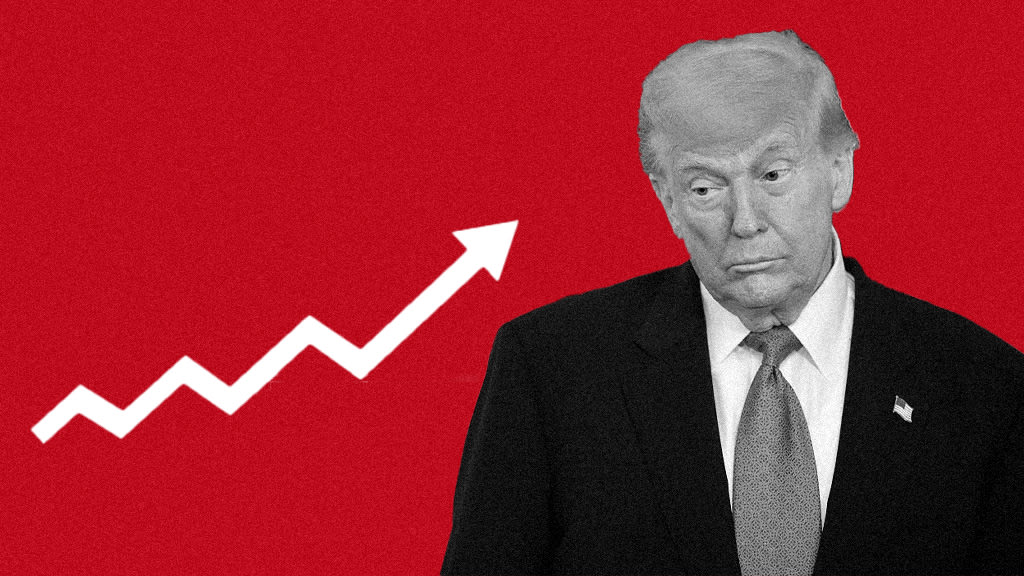Stocks rise on cooler-than-expected inflation data
Stocks rose on Wall Street Tuesday, boosted by more signs the nation's high inflation may be falling off faster than expected. But a flare-up of worries about the war in Ukraine kept Wall Street shaky Tuesday and undercut much of its big morning gains.
The S&P 500 rose 34.48 points, or 0.9%, to 3,991.73. Earlier in the day, it saw a 1.8% gain disappear and swung briefly to a loss of 0.1%. The Dow Jones Industrial Average rose 56.22 points, or 0.2%, to 33,593. The Nasdaq rose 1.4%.
Through the market's swerves, technology stocks continued to lead Wall Street on hopes that the Federal Reserve may ease up on the pace of its interest rate hikes, which are meant to tame inflation by slowing the economy.
The government reported that prices at the wholesale level rose 8% in October from 12 months earlier, the fourth straight decline and the latest sign that inflation pressures in the United States are easing from painfully high levels.
- Inflation making it tough for Americans to save for retirement
- As inflation bites, grocery chains cut price of Thanksgiving food
- Inflation-slammed Americans are piling on credit card debt
"Today's data point confirms that the Fed's strategy is paying off, and while there is still a tough road ahead to bring inflation under control, we seem to be headed in the right direction," said Raymond James' Chief Economist Eugenio Aleman.
On a monthly basis, the government said Tuesday that its producer price index, which measures costs before they reach consumers, rose 0.2% from September to October. That was same as in the previous month, which was revised down from an initial reading of 0.4%.
"Equity markets are looking slightly positive," said Craig Erlam of Oanda in a report. The rally of the past few weeks is "perhaps slowing a little," he said, but "there doesn't appear to be much appetite at this stage to bail on it."
Fed rates likely to stay elevated
Investors worry this year's repeated interest rate increases by central banks to cool inflation might tip the global economy into recession.
Traders expected the Fed to raise its benchmark lending rate again at its December meeting, but by a smaller margin of one-half percentage point after four hikes of 0.75 percentage points. Fed officials say rates might have to stay elevated for an extended time to cool prices.
"Though today's reading and last week's CPI report show prices are heading in the right direction, the Fed is still on pace to raise rates another 50bps in December, with a smaller increase possible in February, as it seeks to bring down inflation markedly," economists at Oxford Economics said in a research note.
While for the rest of the year, the Fed is expected to maintain its aggressive stance on curbing inflation that is near a four-decade high, analysts predict Fed hikes to ease up in 2023 as inflation continues to cool down.
"The Fed will likely increase the fed funds target by 0.50% in December and potentially slow further rate increases to 0.25% increments," said Jeffrey Roach, Chief Economist for LPL Financial, in a note. "Barring geopolitical or financial crises, inflation should continue its deceleration into 2023."
Last week's lower-than-expected consumer prices data propelled markets to their best week since summer.
Walmart announces earnings, opioid settlement
Walmart jumped nearly 7% after the retail giant announced earnings and a plan to settle lawsuits filed by state and local governments over the toll of powerful prescription opioids sold at its pharmacies with state and local governments across the U.S.
The $3.1 billion proposal follows similar announcements earlier this month from the two largest U.S. pharmacy chains, CVS Health and Walgreen Co., which each said they would pay about $5 billion.
The deals are the product of negotiations with a group of state attorneys general, but they are not final.
As Americans have continued to struggle amid the rising cost of living, some of the nation's largest retailers have been using soaring inflation rates as an excuse to raise prices and rake in billions of dollars in additional profit, a corporate watchdog group charged back in May. While today's figures may not prevent the Fed's from another large hike in December, it may put a damper on the rising cost of everyday products and services.
"Businesses are losing pricing power in a cooling economy," noted Bill Adams, chief economist for Comerica Bank in an email. "Downside surprises from CPI and PPI inflation are not enough for the Fed to change its tune at next month's rate decision, though."
Weakening dollar
In energy markets, benchmark U.S. crude lost 66 cents to $85.21 per barrel in electronic trading on the New York Mercantile Exchange. The contract fell $3.09 to $85.87 on Monday. Brent crude, the price basis for international oil trading, shed 54 cents to $92.60 per barrel in London. It fell $2.85 the previous session to $93.14.
The dollar edged down to 139.36 yen from Monday's 139.92 yen. The euro gained to $1.0404 from $1.0353.
On Wednesday, the U.S. government gives an update on retail spending. Economists say growth likely revived to 0.9% in October from the previous month's flat performance.



